Description
Participants will listen to a story about sign language, sing a song together and learn a few words in other languages and international sign languages.
Number of participants
Any number of participants
Space considerations
An indoor space where participants can be seated to do an activity
Competencies
- Language building
- Cognitive development
- Communication and expression
- Motor skills and dexterity
Materials
- Laptop with projector
- Printed copies of song (optional)
- Sign Language Around the World presentation
- Books about sign language
Preparation
- Prepare a display of books about sign language that would appeal to a wide range of children, with an emphasis on younger children and infants.
- Print or display the lyrics to the song (optional).
- If you plan to use the song as part of your program and are unfamiliar with it, take a few minutes to read ahead and practise the signs.
Implementation
- Begin with the optional song “The More We Get Together.” Distribute printed copies to parents and caregivers or display on screen.
- Read aloud the book Dancing Hands by Joanna Que or another suggested title with sign language content.
- Introduce some simple words in different sign languages around the world by showing the signs and saying the word, using the provided presentation.

- Explain that while many international sign languages have signs in common, they are distinct languages with unique vocabulary, alphabets and structures.
- As with spoken languages, there can be more than one sign for the same word. Words in sign languages have regional differences and variations.
- The sign languages we will explore are
- American Sign Language (ASL), commonly used in the US as well as most parts of English-speaking Canada
- Filipino Sign Language (FSL), used mostly in the Philippines
- Bangla Sign Language (BdSL), used mostly in Bangladesh and some parts of India
- Ugandan Sign Language (USL), used mostly in Uganda, which was the first country to make its sign language one of its official national languages
Let’s sign these words:
- Friend
- Book
- Water
- Thank you
Let’s sign the word for | |||
ASL | BdSL | FSL | USL |
friend | bondhu | kaibigan | mukwano |
Hook your pointer fingers together, and then switch them back and forth.
This is the same sign in ASL, FSL and USL.
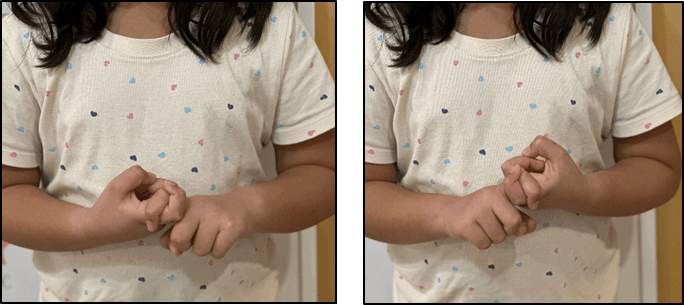
A similar way of signing “friend” can be seen in BdSL: To sign “friend”/”bondhu,” clasp hands across each other and shake firmly.
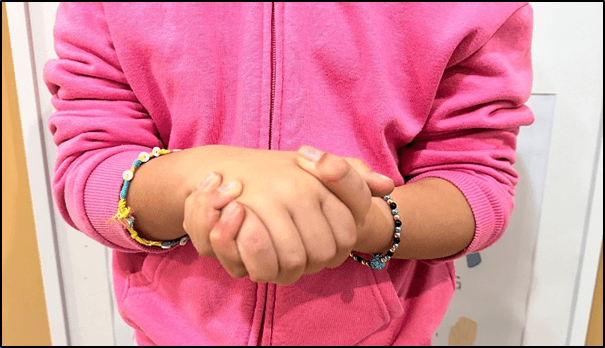
Let’s sign the word for | |||
ASL | BdSL | FSL | USL |
book | boi | libro | ekitabo |
ASL and FSL
Palms touching, fingers pointing away, then open up hands, pinky fingers still touching, as if opening pages of a book.
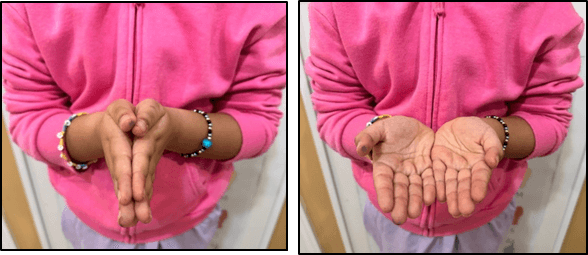
BdSL
Palms touching, fingers pointing up, then open up hands and drop them down, with just fingertips still touching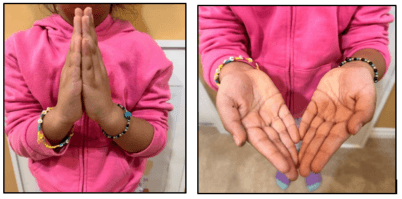
USL
Palms touching, fingers pointing away, then open hands out and apart.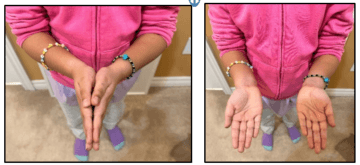
Let’s sign the word for | |||
ASL | BdSL | FSL | USL |
water | paani | tubig | amazzi |
ASL, FSL and USL:
Make ‘W’ with fingers and tap sideways against chin
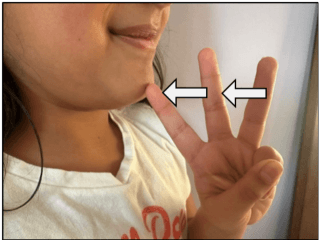
BdSL
One variation is to make “c” cup shape and bring to lips and back down.

Let’s sign | |||
ASL | BdSL | FSL | USL |
thank you | dhonnobhad | salamat po | webale |
ASL and BdSL
Lift hand up to chin, then down and out.
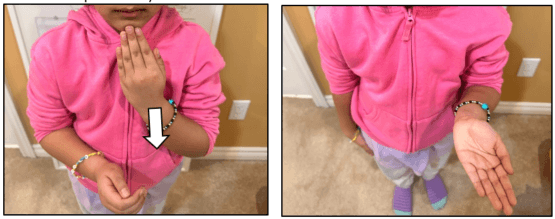
USL and FSL
The same as ASL, but with both hands.
Lift both hands to chin. Lower hands down and out.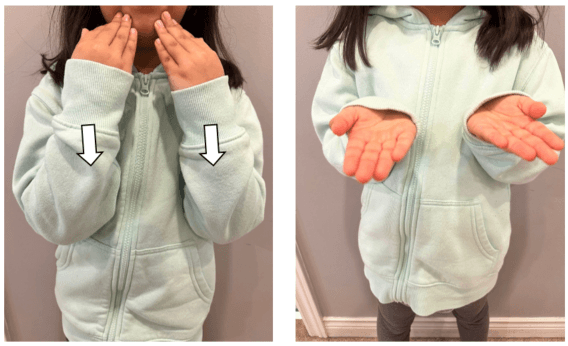
Have participants practise and follow along. Very young children may not be able to precisely create every sign. Encourage everyone to do their best!
To extend this program or enhance it, consider going through additional signs with participants. More FSL words can be found in Dancing Hands.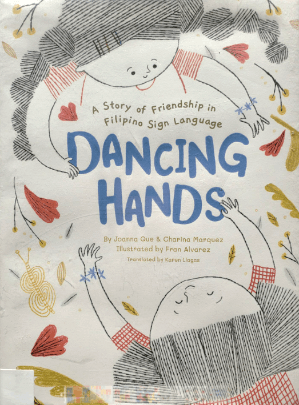
You can also practise some of the spoken language words from the languages explored today. The words have been provided, but common online tools (Google, YouTube) can offer pronunciation help. If you have other language materials in your library, share these resources. This can be particularly encouraging for new Canadians and multilingual families.
Accessibility considerations
- Select just a few words to share or use just one or two languages
- Display the words of the optional song using a projector
- Use a microphone when speaking
Book suggestions
- Dancing Hands: A Story of Friendship in Filipino Sign Language by Joanna Que, Charina Marquez and Fran Alvarez
- Butterfly on the Wind by Adam Pottle and Ziyue Chen
- Next Door by Deborah Kerbel and Isaac Liang
- Same Here! The Differences We Share
by Susan Hughes and Sophie Casson - Meena Can’t Wait by Farida Zaman
Download links
- Sign Language Around the World—Full Activity PDF
- The More We Get Together—Song Lyrics and ASL Signs
- Sign Language Around the World—PPTX Presentation
Selected resources
ASL
BdSL
1. United Nations Development Programme Bangladesh
2. National Deaf Children's Society (UK) program books
FSL
- Dancing Hands: A Story of Friendship in Filipino Sign Language
by Joanna Que, Charina Marquez and Fran Alvarez
USL